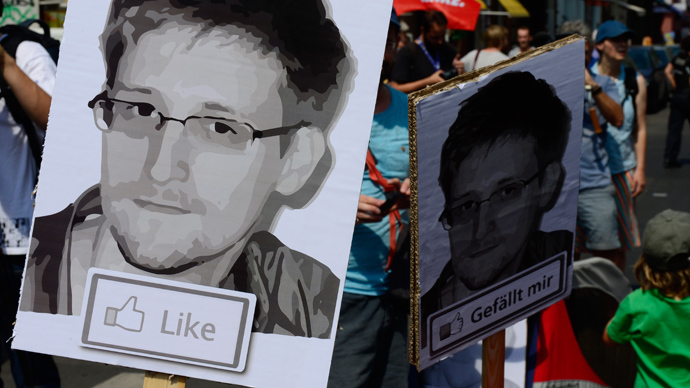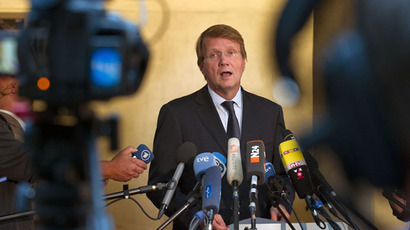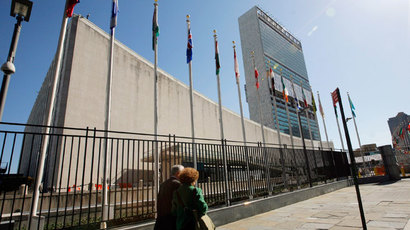US intelligence warning allies about sensitive Snowden leaks yet to be published - report

American officials have begun advising US allies that the ongoing National Security Agency disclosures made possible by whistleblower Edward Snowden include files detailing cooperation between their international intelligence services.
US officials told The Washington Post that Snowden leaked documents indicating massive intelligence gathering efforts against sometimes hostile countries, including China, Russia and Iran. Those files contain evidence linking other countries, ones that may want to keep their cooperation with the US quiet, to such data collection.
Other countries’ military capabilities – details on weapons, missiles, ships and jets, among others – are included in the information in question, not surveillance.
This news comes after the NSA was accused of secretly monitoring sympathetic leaders, among them German Chancellor Angela Merkel, whose personal phone may have been tapped. As such, US intelligence has struggled in recent weeks to keep allies happy while keeping operations that rely on allies in motion.
“It is certainly a concern, just as much as the US collection [against European allies] being put in the news, if not more, because not only does it mean we have the potential of losing collection, but also of harming relationships,” an unnamed congressional aide told the Post.
The Office of the Director of National Intelligence is undertaking the task of informing international foreign services how they could have been inadvertently compromised. The already unenviable job is further complicated by the fact that, in many countries, one government agency is responsible for cooperating with the US while other departments are likely in the dark.
Among the difficulties in question is an operation against Russia overseen by a NATO country which then supplies the data collected to the US Air Force, Army, Navy and Marines, according to the Post report.
“If the Russians knew about it, it wouldn’t be hard for them to take appropriate measures to put a stop to it,” one official admitted.
Officials estimate that Snowden took approximately 30,000 documents from the Defense Intelligence Agency, which is frequently used by different branches of the armed services. And while US authorities have been investigating under the assumption that Snowden provided material to hostile governments, the former NSA contractor has denied that assertion and said more than once that he wishes to do no harm to the US.
“There’s a zero percent chance the Russians or Chinese have received any documents,” Snowden told The New York Times.
Thomas Drake, a former NSA executive turned whistleblower, was among a small group of civil liberty advocates who met with Snowden in Moscow this month.
“He’s made it quite clear that he was not going to compromise legitimate national intelligence and national security operations,” Drake said. “It’s telling that he did not give anything to WikiLeaks.”
Drake added that none of the documents the US is currently warning other nations about have been published yet.
Strains developed as a result of Snowden’s leaks were already on display Thursday as Brazil and Germany announced a joint effort to pass a United Nations General Resolution that would be the first notable international effort to rein in the NSA’s monitoring of foreign online communications. Like Germany’s claim that Merkel was the subject of surveillance, Brazilian President Dilma Rousseff has spent months condemning NSA intrusions into Brazil as “a breach of international law.”
Diplomats from both countries sat down in New York Thursday with officials from Latin American and other European governments to discuss a draft resolution that would expand the privacy rights outlined in the International Covenant on Civil and Political Rights adopted in the 1960s into the internet age. The document did not specifically mention the NSA, according to Foreign Policy magazine, yet the insinuation seemed clear.
“This is an example of the very worst aspects of the Snowden disclosures,” an anonymous defense official said. “It will be very difficult for the US to dig out of this, although we will over time. The short term costs in credibility and trust are enormous.”














